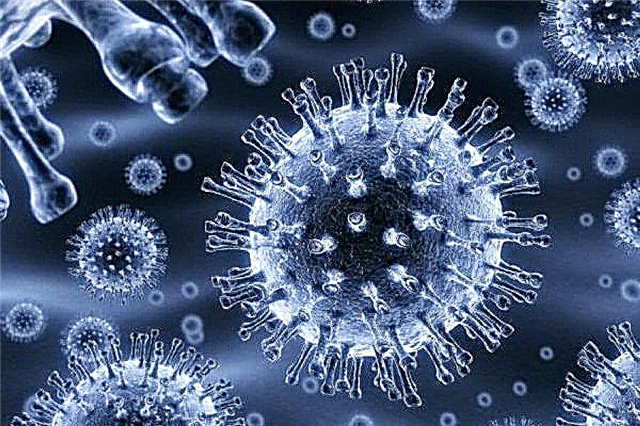It is known what danger lies in wait for babies in the environment after birth. Harmful microorganisms can harm a child's health and immunity. The main barrier in newborns is the gastrointestinal tract and the beneficial microorganisms that live there. The health of the baby and the calmness of the mother depend on his condition.
Beneficial bacteria are sensitive to various antibacterial drugs. If the mother uses them during treatment (inflammation, for example), this leads to a serious disorder - dysbiosis. And you can overcome it with the help of preparations containing "live" bifidobacteria for newborns.
The composition of the intestinal flora in infants
About 95% of the bacteria in a child's digestive tract are bifidobacteria, lactobacilli, and E. coli. The share of opportunistic microorganisms is small, but with diseases of the gastrointestinal tract, they can multiply and cause a lot of trouble for the baby and parents.
Find out from the expert's article what normal bowel movements should be in a baby and what defecation disorders are most common.
Among them are:
- candida — a special kind of mushroom;
- klibsiella;
- clostridia.

The activity of these pathogenic bacteria directly depends on the number of bifidobacteria and, if the number of the latter decreases, infectious processes start in the baby's body.
It should be noted that the child's intestines are not populated with the necessary microflora immediately, but over time. This explains phenomena such as regurgitation, unstable stools and other symptoms of a sore tummy. This is a normal condition and no treatment is required.
Real, or true dysbiosis is manifested when the number of "bad" bacteria exceeds the number of bifidobacteria and lactobacilli.
Dysbacteriosis is one of the symptoms indicating the presence of inflammatory foci in a newborn's body.
When does a baby need to take bifidobacteria and drugs based on them?
If the child has:
- symptoms of intestinal colic;
- frequent regurgitation;
- poor weight gain;
- loose stools more than 10 times a day for newborns or constipation.
You will also need a reception if the baby is bottle-fed.
A detailed article by a pediatrician on why babies are constipated and how to cope with this condition.
The pediatrician in the article talks in great detail about where dysbiosis in children comes from and how to prevent the occurrence of this syndrome.
If a nursing mother has:
- diabetes;
- infectious diseases;
- difficult childbirth and complications with them;
- had gestosis during pregnancy.
If one or more of the above symptoms are present, treatment will be required.
Mother's milk is the best that a mother gives to her child. Through it, he will receive everything he needs, including beneficial microorganisms. In this case, taking bifidobacteria is inappropriate.
How to choose the right drug?
Any medicine should be used only as directed by the attending physician. The situation is especially strict with the administration of drugs for newborns. Follow your doctor's instructions.
Nowadays, mom and dad can easily find out which drugs contain certain live bacteria, and also study in detail their side effects and effectiveness.
Probably many have heard of similar names of drugs, but performing completely different functions: prebiotics and probiotics.
Prebiotics are drugs containing ready-made bacteria, and probiotics are drugs that stimulate the growth of beneficial bacteria in the baby's intestines and inhibit the vitality of the "bad" ones.
Biologicals for children
Bifidumbacterin for newborns... It is used in the complex treatment of rickets, diathesis and intestinal infections. It is often used when natural feeding is impossible, when the baby is fed with formula.
 How to give Bifidumbacterin to babies? Keep in mind that this drug can cause allergies, as it contains live bifidobacteria, lactose, calcium stearate. Therefore, be careful if the baby is allergic.
How to give Bifidumbacterin to babies? Keep in mind that this drug can cause allergies, as it contains live bifidobacteria, lactose, calcium stearate. Therefore, be careful if the baby is allergic.
It is necessary to give this drug to a newborn half an hour before meals or an hour after. The suspension is mixed with breast milk or infant formula. Babies up to six months of age should be given 3 sachets per day at regular intervals. The standard course of treatment is 21 days. A second course - in a month.
Analogues: Bifiform, Bifidumbacterin Forte.
Acylact... Good in the complex treatment of intestinal infections and atopic dermatitis. The big plus is that it is lactose free. Therefore, it can be given to babies with lactase deficiency. Lactobacilli are all in its composition.
Linex... It contains both bifidobacteria and lactobacilli, starch and lactose. It is successfully used in the complex treatment of dysbiosis. Lactomun, Bifidumbacterin are its analogues.
Remember that the instructions for use of this or that drug are only general recommendations. It is necessary to strictly follow the instructions of the doctor, not to use the experience of familiar mothers or other persons incompetent in medicine. If a reaction occurs to any drug - constipation, vomiting, allergies, you should immediately show the child to a doctor.
Probiotics in liquid form are much better absorbed by the body and start working immediately after ingestion. To prevent and improve the condition of the intestines of babies, you can give them preparations containing bifidobacteria. There will be no negative effects from this.
It's another matter if the baby has serious intestinal disorders. Such drugs should be taken continuously, taking into account the recommendations of the attending physician. Assign half an hour before a meal.
Dry suspensions are diluted with warm (not hot!) Water and applied according to the instructions and recommendations of the doctor. In any case, no matter what problems with the baby's tummy, consult a pediatrician or gastroenterologist. Health to you and your baby!
Article rating:



